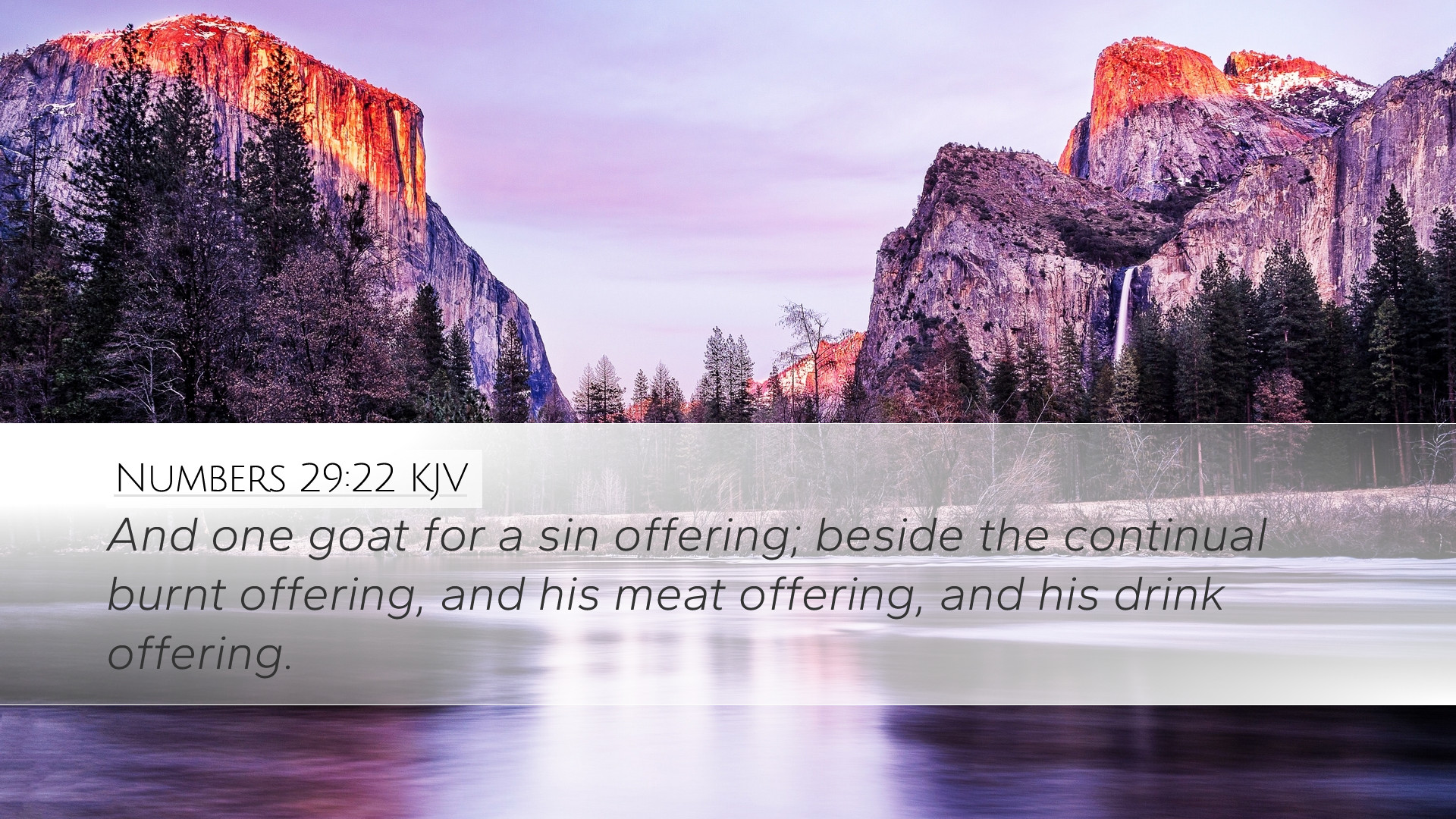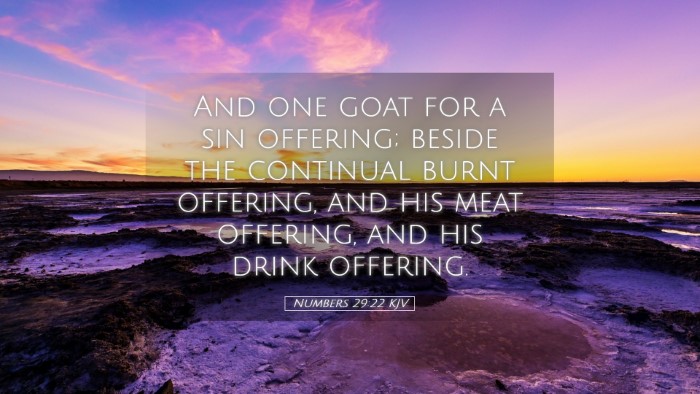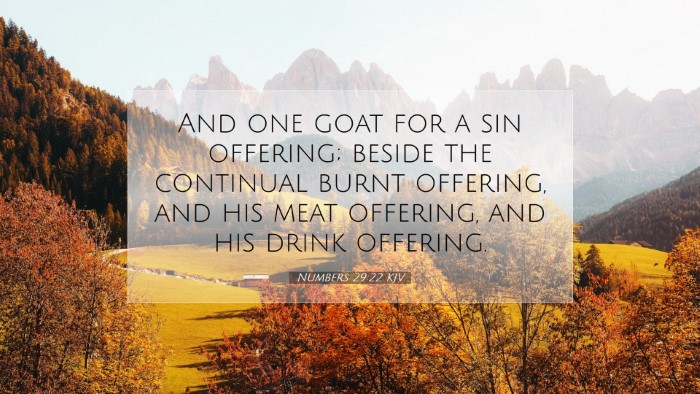Commentary on Numbers 29:22
Numbers 29:22 states, "And their meat offering shall be of flour mingled with oil, and it shall be one tenth deal for one bullock, two tenth deals for one ram, and a several tenth deal for one lamb, throughout the seven lambs." This verse is part of a larger context in the book of Numbers that outlines the offerings and sacrifices during the festivals and feasts as commanded by God.
Overview
This verse specifically details the offerings that are to be prepared during the Feast of Tabernacles. It emphasizes the significance of these offerings in Israel's worship and communal identity. The offering of flour mingled with oil signifies the perfect blend of the human element in worship, thus emphasizing both divine and human contributions.
Theological Significance
The meat offering, or grain offering, prescribed here is not merely an act of ritual, but serves deeper theological implications:
- Representation of Spiritual Nourishment: The flour represents sustenance—not just physical but spiritual. God's provision is central to the worship experience.
- Symbol of Relationship: The mingling with oil symbolizes the Holy Spirit's presence and the anointing of the offerings. This speaks to the believer's relationship with God through the Spirit.
Commentatorial Insights
Various public domain commentaries provide rich insights into this verse:
Matthew Henry
Henry notes that the offerings during the Feast of Tabernacles were to be greater than those of other festivals, reflecting the abundance and joy of harvest. He emphasizes that meticulous attention to details in these offerings indicates God's desire for order and reverence in worship.
Albert Barnes
Barnes outlines that the offerings specified serve to remind Israel of their dependence upon God. The proportions set forth for the offerings denote the grace of God that supplies their needs. In particular, Barnes observes the importance of the tenth part, which historically points to the principle of giving a tithe to God as recognition of His providence.
Adam Clarke
Clarke discusses the significance of each element within the offering. He highlights how the oil used in conjunction with the flour denotes the blessings of the Holy Spirit. Clarke also points out that the lamb's offering, in particular, points forward towards the ultimate sacrifice of Christ—the Lamb of God.
Practical Applications
This verse calls for reflection on several practical aspects:
- Worship and Sacrifice: Modern worship should incorporate elements of sacrifice, where believers are called to contribute their resources and time in a manner that honors God.
- Community Aspect: Just as these offerings were communal, Christians are encouraged to worship together in the body of Christ, fostering unity and collective spiritual growth.
- Preparation for Worship: The meticulous preparation that the offerings required serves as a reminder for believers today to prepare their hearts and minds before entering worship.
Summary and Conclusion
Ultimately, Numbers 29:22 encapsulates various layers of meaning regarding offerings in the Old Testament, connecting them to worship, community, and spiritual nourishment. The insights from scholars and theologians help illuminate how these ancient practices inform contemporary approaches to faith. By examining this verse and its context, pastors, students, theologians, and Bible scholars can find a deeper understanding of sacrifice, worship, and the overarching narrative of salvation found in Christ.


